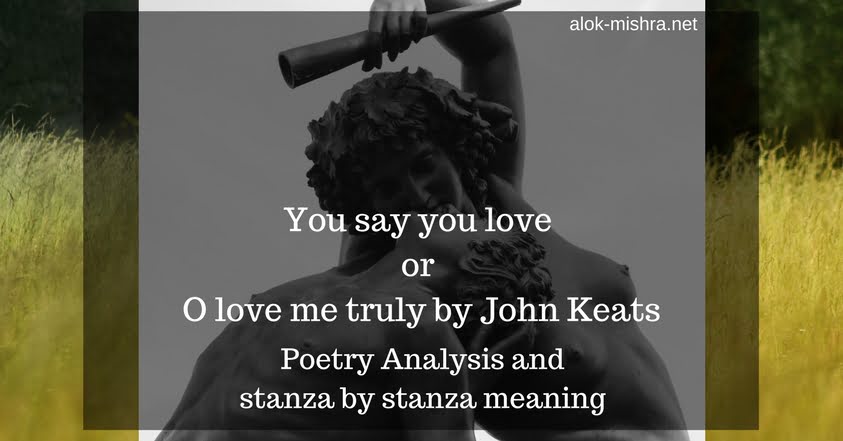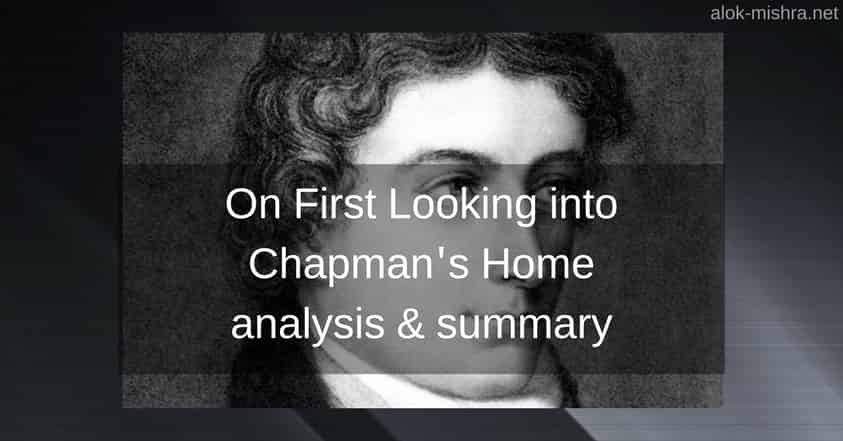"You say you love; but with a voice" is a love poem by John Keats…
Thomas Nashe A Litany in Time of Plague Analysis
Thomas Nashe : A Litany in Time of Plague Summary and Analysis
Thomas Nashe was a great poet. I have no doubts that someone would counter this truth. His poetic conscious and way of expressing the thoughts achieved great heights. A short-lived poet, Nashe only enjoyed a span of 1567-1601; however, in this short life, Thomas Nashe has designed some epitomes of English poetry! A Litany in Time of Plague, the poem by Nashe, is a perfect example of his powerful imagery and the grim realism. In this poem, Thomas Nashe talks about the ground realities of life – death, the truest truth of all time, has the power to defy the momentary glories of life.
In today’s post, I would love to address this poem. I remember to have seen one line of this poem that talks about Helen. And trust me, I have been a great admirer of the aphorism that Thomas Nashe offers. Once you read, you can feel the beauty even in Helen’s death – Dust hath closed Helen’s eye. Moreover, this beauty is husbanded with a realism. Thomas Nashe implies clearly that everything in this world is ephemeral.
A Litany in Time of Plague: The paraphrasing and analysis of the poem
Let us have a look at the poem. I will explain the poem in plain text. I start with the first stanza of the Thomas Nashe’s poem:
“Adieu, farewell, earth’s bliss;
This world uncertain is;
Fond are life’s lustful joys;
Death proves them all but toys;
None from his darts can fly;
I am sick, I must die.
Lord, have mercy on us!”
So, the first stanza of this wonderful poem starts with a ‘farewell’. The poet Nashe is bidding farewell to the bliss of this earth. He says that this world is uncertain – the joys (lustful joys, the poet says it) of this earth are nothing but mere toys in the hands of death. In the last two lines, just before the ending rhyme, celebrate the artfulness of death – the one that reminds of Mac Flecknoe’s epic opening:
“All human things are subject to decay,
and when fate summons, monarchs must obey.”
True, the poet countersigns the ancient epics that say death is the only immortal truth. We all seek asylum in the shadows of God’s mercy, and Thomas Nashe prays for us all. Moving to the second stanza of the poem:
“Rich men, trust not in wealth,
Gold cannot buy you health;
Physic himself must fade.
All things to end are made,
The plague full swift goes by;
I am sick, I must die.
Lord, have mercy on us!”
The second stanza of the poem takes ahead the arguments made in the first. The poet starts with a message to the rich. He says that the rich men should not trust in wealth – for the gold cannot buy you health! Others may or may not, but I do remember the lines of Charles Mackay written in sympathy. Mackay wrote:
“Sympathy is greater than gold” and the poet Nashe is telling the same thing here. Further, he preaches the things Lord Krishna told Arjun in Gita. Our body is mortal, and it ends with time. In fact, everything made by the creator is to end someday. The plague (may be actual, but as a poet, I can say it’s not that actual plague!) is running and it’ll devour everything. One, who is born, has to die; and the poet is no exception, he admits it. This stanza also ends with the same refrain. Moving to the third stanza of the poem, we find:
“Beauty is but a flower
Which wrinkles will devour;
Brightness falls from the air;
Queens have died young and fair;
Dust hath closed Helen’s eye.
I am sick, I must die.
Lord, have mercy on us!”
The third stanza of the poem A Litany in Time of Plague is the most commented, most popular and also, my favourite. This very stanza has the glory of bearing the line that bears the immortality of Helen’s beauty. However, as realism lingers throughout the poem, this stanza evaluates beauty in the proportion of time. Nashe says that beauty is like a flower, and flowers are meant to lose their charm! It is true! The poet tells us about the beautiful queens who have died at young age. “Dust hath closed Helen’s eye.” This line, if I am not overwhelmed with excitement, sums up the poem! Helen’s beauty was incomparable; she is still remembered as an epitome of beauty. However, her beauty (that attracted even Zeus in the fangs of lust) also could not defy the power of time. Further, the stanza ends with the same refrain coming from the above.
The next stanza of the poem takes us to the height of imagery. Have a look:
“Strength stoops unto the grave,
Worms feed on Hector brave;
Swords may not fight with fate,
Earth still holds open her gate.
“Come, come!” the bells do cry.
I am sick, I must die.
Lord, have mercy on us!”
As a poet, I envy the art of Thomas Nashe! He is a genius of words and artist of the artistry of imagery… The very first line of this stanza emits a message that is true, and the truth is justified in the next line that witnesses the dead body of the brave Hector being tasted by the worms! The beauty is poetry is visible to all the naked eyes who read the line that reflects a one-sided battle between the sword and fate. Yes, indeed, no sword in the world is sharp enough to behead the glorious head of the fate. We have come from the soil; we return to the very land. This rhyme is heard in the last lines of this stanza. All intellectuals and men of wit do understand that the call of immortal death is waiting for their arrival. To make things clear, I can suggest a possible parallel to this stanza by Nashe. You must remember the poem, or better to call the Elegy written by Thomas Gray. In that poem, Gray writes:
“The paths of glory lead but to the grave.”
Be it Hector, Achilles, Menelaus or any of the bravest of the braves – time had the last laugh! Once you are brought to this world, you have to comply with the rules of that eternal authority! Now we move to the penultimate stanza of the poem:
“Wit with his wantonness
Tasteth death’s bitterness;
Hell’s executioner
Hath no ears for to hear
What vain art can reply.
I am sick, I must die.
Lord, have mercy on us!”
The first two lines of this stanza talk about (perhaps) intellect. People with the sharp mind or creative talents also suffer death. Thomas Nashe says that the executioner of hell has no ears to hear. It implies that the divine justice of God has no prejudice or partiality for people; good or bad, beautiful or ugly, saint or giant, everyone has to go through death. ‘Vain art’ can do nothing. You can only paint the image of death, and only that! The stanza ends with the same refrain, asking for mercy from dear Lord.
The last stanza of the poem A Litany in Time of Plague ends the poem with high spirits. Thomas Nashe gives hope to his readers in a great fashion. He writes:
“Haste, therefore, each degree,
To welcome destiny;
Heaven is our heritage,
Earth but a player’s stage;
Mount we unto the sky.
I am sick, I must die.
Lord, have mercy on us!”
The poet urges people to welcome the destiny with open arms. Heaven is the true heritage of people on the earth who are but playing their part on the stage set by the creator. The ultimate destination is the sky, and we have to mount it. Therefore, one must die to attain the eternal heights!




thanks it is my favrite poem
Very accessible and illuminating with appreciated highlighting of the poem’s universal audience by way of reference to the Gita.
Mr Mishra this just helped me complete a critical appreciation essay, thank you very much
Very helpful blog and it introduces me with so many poems and topics of litrature! Great help for a litrature student! Good luck
Thanks for the read, Ruchi! I am glad the article helped you!
Alok
Every weekend i use to visit this website, for the reason that i wish for enjoyment, as this this site conations really fastidious funny stuff
too.
Perfect! This is the one I was looking for! This critical appreciation of the poem by Thomas Nashe is the most enlightening and I am sure much better than any other found on internet. Thanks so much. you saved my semester Alok. Thank you for your articles on English literature and these useful notes! Do more. best wishes
I just like the valuable info you supply for your articles. I will bookmark your weblog and take a look at once more right here frequently. I’m reasonably sure I will be informed many new stuff proper right here! Good luck for the following!|